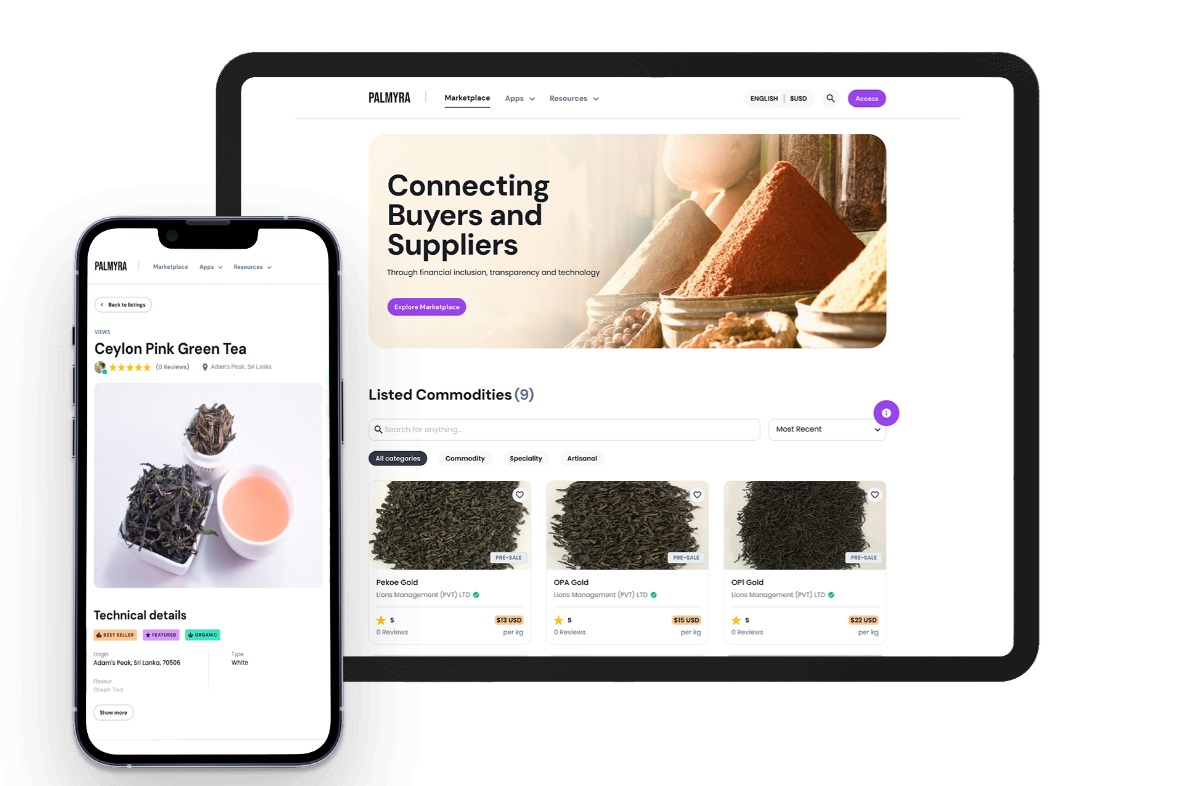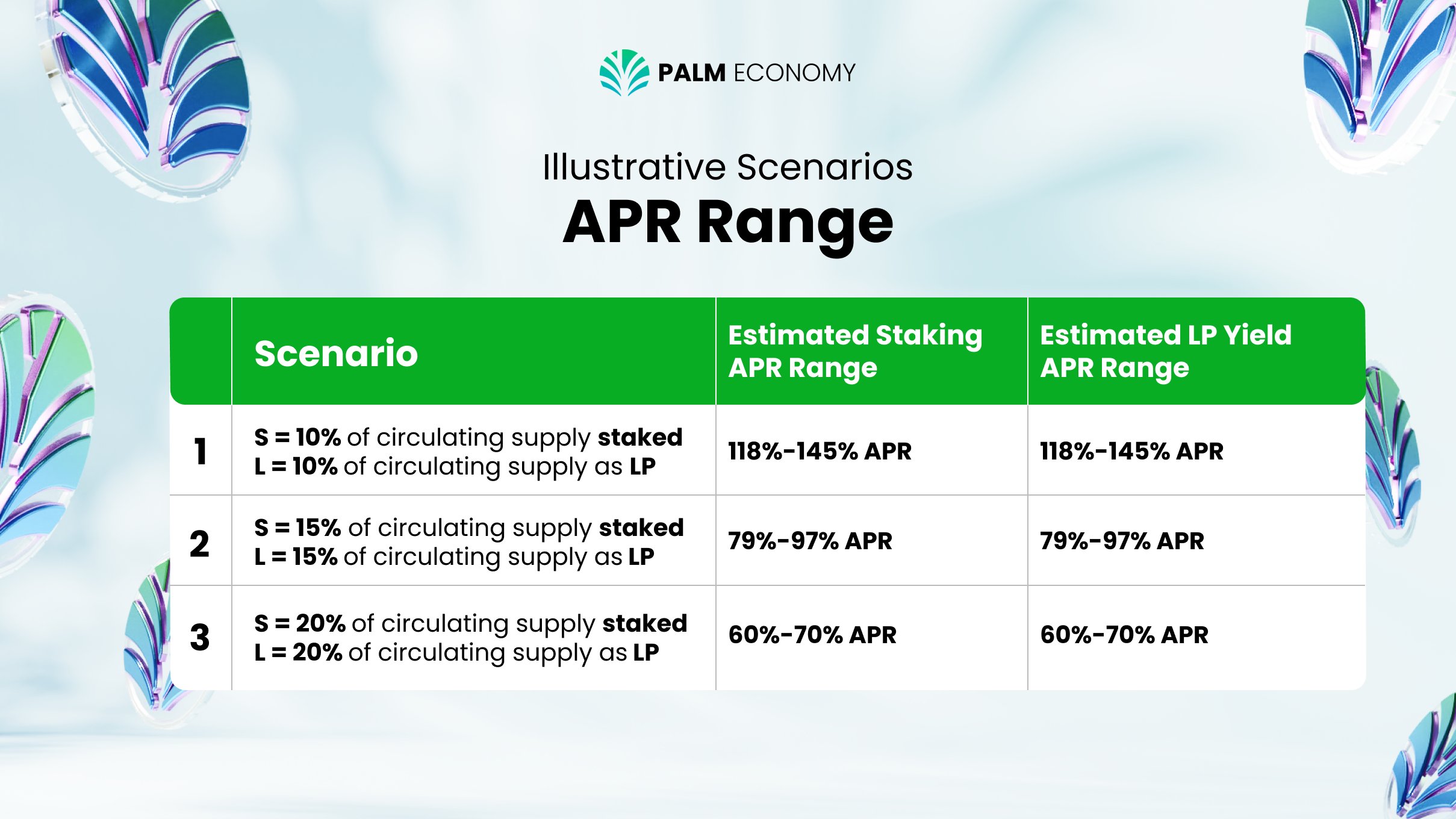Latest PALM 1.4 Whitepaper compiled 7th July and published 21st July can be read here.
For historic purposes
PALM 1.3 Whitepaper compiled 30th June and published 1st July 2025 can be read here.
$PALM is the Cardano Native Token of the Palm Economy, a recently launched and growing ecosystem built on the Cardano blockchain. Palm is also an BSC-20 (Binance Chain) token rsPALM and the total supply is 50 billion tokens over the two blockchains.
Palmyra is multiple platform designed to transform real-world commodity markets by bringing blockchain-level efficiency, transparency, and trust to industries that have traditionally lacked access to modern capital markets.
About Palmyra and the Palm Economy
Palmyra Products combines off-chain data, smart contracts, and tokenized incentives to support the creation of verifiable, tradeable, and yield-generating real-world commodities. Through blockchain technology, it advances ethical sourcing, ensures production transparency, and enhances the efficiency of global trade.
Palm Economy's Product Suite:
Palmyra.app – The B2B marketplace platform for listing, buying, and trading traceable real-world commodities.
Palmyra Pro – A professional suite tailored for enterprise and institutional users needing deeper compliance, supply chain management, and tracablility capabilities.
Palmyra Endeavor – A specialized platform initiative focused on tokenization and ethical material production, starting with sectors like lithium mining and solar power.
Palmyra Express – A lightweight B2C, solution for small producers and businesses to access global trade with minimal barriers.
PALM Utility and Staking Rewards
PALM isn't just a medium of exchange – it’s the backbone of the Palm Economy. PALM holders can stake their tokens through palmeconomy.io and earn rebate fees generated from activity across Palmyra platforms. Additionally, users can provide liquidity on decentralized exchanges (DEXs) to earn further rewards.
Driving Ethical Sourcing
Palm Economy ensures that end consumers and businesses can verify where a material comes from and how it was produced. Whether certifying that olive oil was sustainably harvested or ensuring lithium production handles contaminated water responsibly, the Palm Economy creates a new standard for ethical and transparent sourcing.
Whitepaper for PALM.
Note: This article does not constitute financial advice.
2022: zenGate Global, the company that is the creator of Palmyra Platform was founded in 2022 with the key mission to bring financial inclusion for businesses through building paradigm shifting solutions.
2023: Palmyra launches MVP
2024: Several partnerships sign such as with World Mobile to integrate Palmyra Platform with World Mobile's blockchain-based wireless infrastructure and USDM to use the stablecoin to provide a stable medium of exchange and expand payment options.
2025: PALM Token ISPO, and TGE phases. PALM launches on centralized exchanges.

The Palmyra platform is a paradigm-shifting ecosystem and next-generation full-service supply chain solution for commodities that are semi-fungible and currently have limited access to traditional capital markets. It offers multiple commodities that are tracked such as tea, cinnamon, cardamon, pepper, nutme, mace, cloves, honey, ginger, turmeric, olive oil, vanilla, lavander, ashwagandha, moringa, lemongrass, hibiscus, chamomile, fenugreek, butterfly pea flower, opal and sunstone.
Staking for Rebates: Users who stake PALM on the platform receive rebates on transaction and platform service fees. The staking uses a Dynamic APR to balance between tokens in liquidity pools and staked by token holders. The annual percentage rate depends on the total amount provided for staking and liquidity. The below image is an illustrative of this from the Palm Economy twitter post on the topic.
Dynamic Revenue Flow: A portion of all fees gets converted into PALM. Rebates are calculated and distributed every 24h. Residual fees fund the Treasury and Oracles
Burn Mechanics: A share of revenue is burned, depending on staking participation.
Oracle System: Fully decentralized, validating off-chain data inputs and providing recourse mechanisms.
Cardano Native Token: Issued with a fixed supply curve and distributed via smart contracts audited by Sundae Labs.
Tracking for Safe Consumption: The blockchain system provides end-to-end tracking to ensure complete accountability. Digital tracking verifies that the goods are certified origins and comply with safety regulations. This prevents uninspected goods from reaching the market to avoid risks of contamination.
